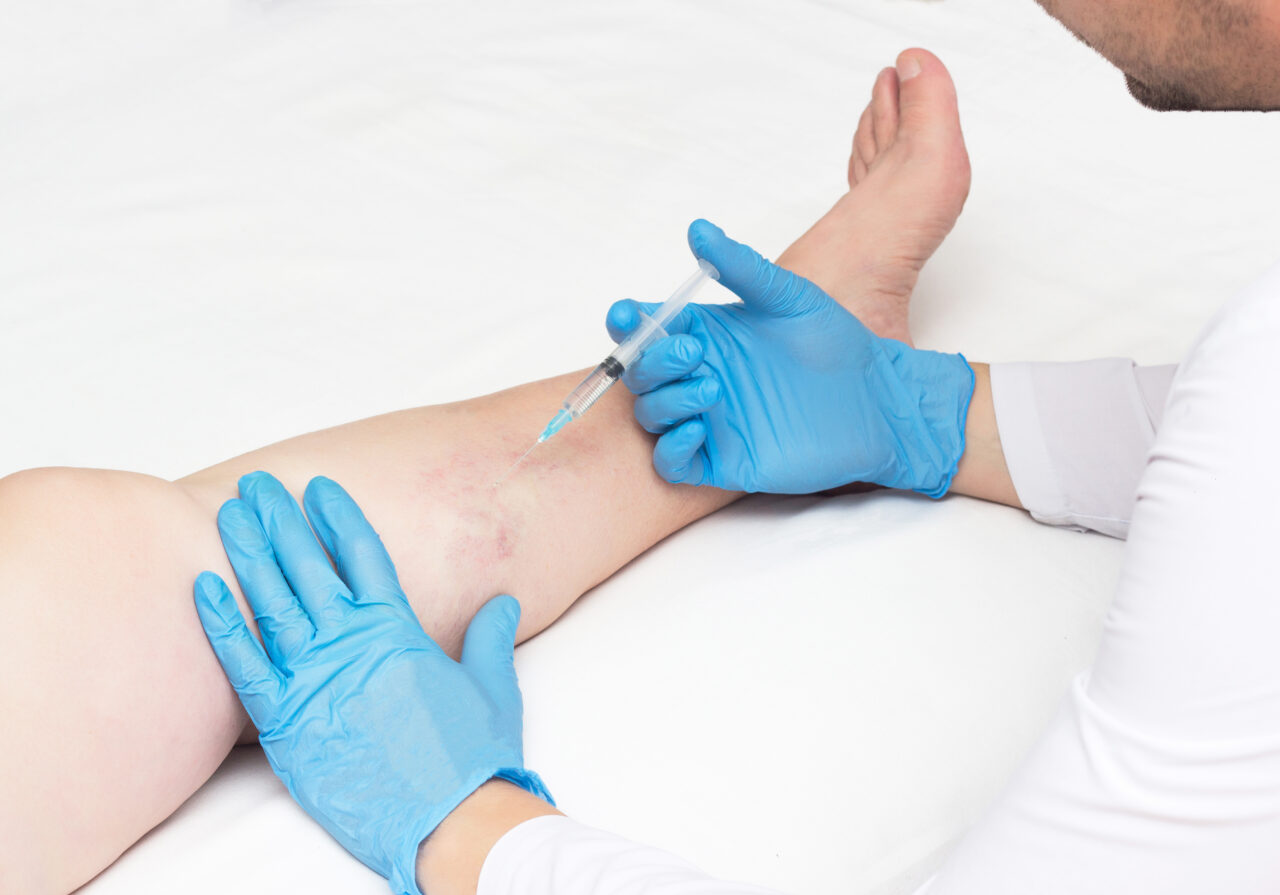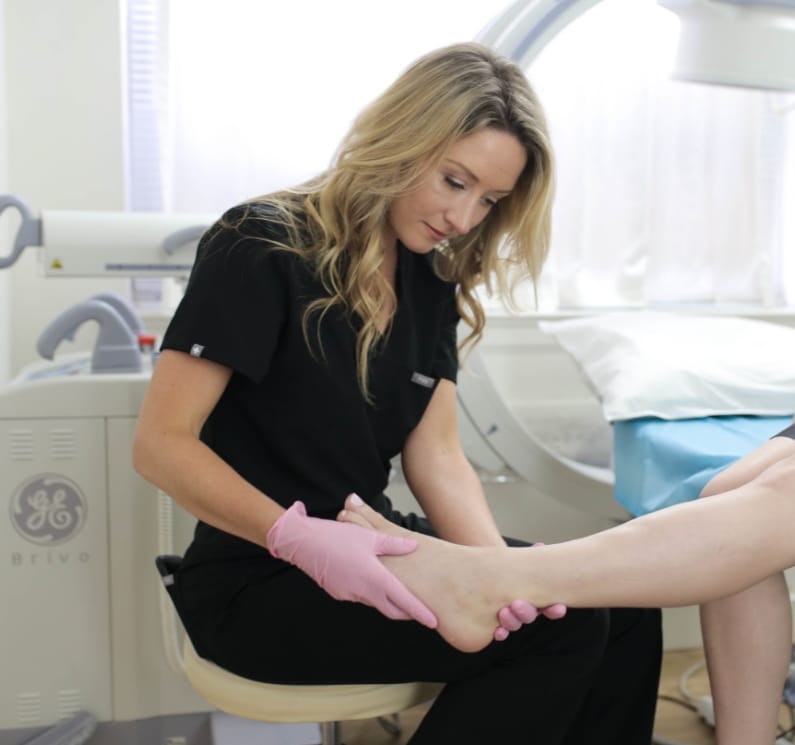What is a vein center?
A vein center is a medical facility that specializes in the treatment of vein diseases that can cause pain, swelling, spider veins, varicose veins, and other problems in the legs and feet. Vein centers are staffed by vascular surgeons, vein doctors, and other medical professionals who are experts in the treatment of vein disease.
Vein centers offer a variety of treatments for vein diseases, including sclerotherapy, laser ablation, and other minimally invasive procedures. Sclerotherapy is a treatment that involves injecting a solution into the veins to shrink them. Laser ablation is a minimally invasive procedure that uses a laser to destroy the diseased vein responsible for your vein problems.

Vein centers also offer other services, such as vein mapping and duplex ultrasound, which can diagnose chronic venous insufficiency, the root cause of most vein problems. If you are experiencing any of the symptoms of vein disease, such as spider veins, varicose veins, leg heaviness, leg swelling, restless leg syndrome, and leg pain, visit a vein center for evaluation.
Vein Treatment Clinic is a group of state-of-the-art vein centers specializing in cutting-edge, minimally invasive treatments for spider veins, varicose veins, and other vein diseases. Our vein care specialists only offer minimally invasive procedures for vein disease — no surgical procedures. Our considered and minimally invasive approach to vein care ensures safe and long-lasting relief from vein problems.

You can find our vein centers in Long Island, New York, New Jersey, California, and Maryland. Our New York vein centers are located in the Financial District and Midtown Manhattan. If you’re in or around Midtown, you can find our vein doctors at our state-of-the-art vein centers a few blocks from the Chrysler Building. Please schedule an appointment to explore your minimally invasive vein treatment options.
What do vein centers treat?
Vein centers treat a variety of conditions that affect the blood vessels in the legs, including spider veins, varicose veins, leg heaviness, restless leg syndrome, leg pain, frequent leg cramps, chronic venous insufficiency, leg ulcers, and deep vein thrombosis.
- Spider veins are small, red, purple, or blue veins that often appear on the legs. They are usually harmless, but they can also be indicative of underlying chronic venous insufficiency.
- Varicose veins are larger, swollen veins that often appear as twisted, bulging ropes. They can be painful and can lead to other problems, such as skin ulcers.
- Leg heaviness is a common symptom of vein disease. It can make it difficult to walk or stand for long periods of time.
- Restless leg syndrome is a condition that causes an uncontrollable urge to move the legs. This can be due to the accumulation of blood in leg veins.
- Leg ulcers are open sores on the legs that don’t heal properly. The lack of proper blood circulation in the legs prevents the wounds from healing, leading to non-healing wounds.
- Skin discoloration is another common symptom of vein disease. The skin may appear red, blue, or purple because of the breakdown of blood cells.
- Chronic venous insufficiency is the primary root cause of most of your vein problems. Vein disease is a condition in which the veins have trouble returning blood to the heart. The collapse of vein valves leads to backward blood circulation and the accumulation of blood in leg veins, leading to spider veins, varicose veins, and other problems.
- Deep vein thrombosis is a condition in which a blood clot forms in a deep vein, usually in the leg. This can be a serious condition and can lead to life-threatening complications if not treated promptly, such as pulmonary embolism. This is one of the advanced complications of untreated vein disease.
When should I visit a vein center?
Vein disease occurs when the valves in your veins stop working properly. This causes blood to pool in your veins and puts pressure on the walls of your veins. Over time, this can cause the veins to become weak and swollen. If left untreated, vein disease can lead to serious health problems, such as blood clots, ulcers, and skin infections.
Vein centers are staffed by vascular surgeons and vein doctors who are specially trained to treat vein disease. As such, you must contact a vein center if you notice any of the signs and symptoms of chronic venous insufficiency, including spider veins, varicose veins, leg heaviness, restless leg syndrome, leg pain, and frequent leg cramps.
How can I find a good vein center?
There are many factors to consider when looking for a good vein center. First, the center should have board-certified vein doctors. These doctors should have excellent credentials and education. They should also offer minimally invasive vein treatments, such as radiofrequency ablation, endovenous laser ablation, and sclerotherapy, instead of vascular surgery.
The vein center should offer comprehensive treatments for the root cause of vein disease instead of simply treating superficial vein problems without a deeper investigation. Finally, the vein doctors at the vein center should be compassionate — they must describe all of your vein treatment options, ensure you understand the treatment protocol, and guide you through every step of the process.
What can I expect during my consultation?
When you arrive for your consultation, you’ll be greeted by the staff and given a short medical questionnaire to fill out. This will help the staff understand your medical history and what may be contributing to your vein problems. Next, you’ll meet with a vein specialist for a physical examination. During the examination, the specialist will check for signs of varicose veins and spider veins. They may also use a special ultrasound device to assess the condition of your veins and determine if you have chronic venous insufficiency.
After the examination, the vein specialist will discuss their findings with you and develop a treatment plan. The type of treatment you receive will depend on the severity of your condition. However, our vein doctors only offer minimally invasive spider vein and varicose vein treatments that conclude within an hour and involve no downtime. At the end of your consultation, you’ll have a better understanding of your condition and what treatment options are available.








